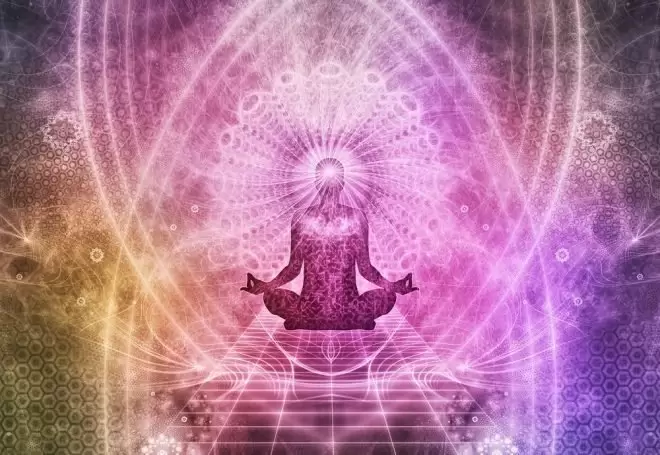Introduction
The chakras are energy centers located throughout the body that are responsible for our physical, emotional, and spiritual well-being. The root chakra, or Muladhara, is the first of these energy centers and is located at the base of the spine. In this blog post, we will explore the root chakra in depth, including its characteristics, functions, and how to balance it for optimal health and well-being.
What is the Root Chakra?
The root chakra, or Muladhara, is the first of the seven chakras in the body. It is located at the base of the spine and is associated with the color red. The root chakra is responsible for our sense of stability, security, and survival.
The root chakra is also associated with the element of earth, which represents our connection to the physical world. This chakra governs our basic needs, such as food, shelter, and safety.
Exploring the Root Chakra: Understanding the Muladhara Energy Center Photo Gallery
Characteristics of the Root Chakra
The root chakra is associated with several physical, emotional, and spiritual characteristics. Here are some of the key characteristics of the root chakra:
- Grounding
The root chakra is associated with the earth element, which represents grounding and stability. When the root chakra is balanced, we feel rooted and secure in our physical body and our connection to the earth.
- Physical Health
The root chakra is responsible for our physical health and well-being. It governs the function of the lower body, including the legs, feet, and spine.
- Emotional Health
The root chakra is also responsible for our emotional health and well-being. It governs our sense of safety and security, as well as our ability to trust ourselves and others.
- Survival Instincts
The root chakra is associated with our survival instincts, such as our fight or flight response. When this chakra is balanced, we are able to respond to stress and danger in a healthy and effective way.
Functions of the Root Chakra
The root chakra performs several important functions in the body. Here are some of the key functions of the root chakra:
- Grounding
The root chakra helps us to feel grounded and connected to the earth. This chakra is responsible for our physical stability and helps us to stay centered in our body.
- Survival
The root chakra is responsible for our survival instincts, such as our fight or flight response. This chakra helps us to respond to stress and danger in a healthy and effective way.
- Physical Health
The root chakra governs the function of the lower body, including the legs, feet, and spine. When this chakra is balanced, we experience good physical health and vitality.
- Emotional Health
The root chakra is also responsible for our emotional health and well-being. This chakra governs our sense of safety and security, as well as our ability to trust ourselves and others.
Balancing the Root Chakra
If the root chakra is imbalanced, it can lead to physical, emotional, and spiritual issues. Here are some tips for balancing the root chakra:
- Connect with the Earth
Since the root chakra is associated with the element of earth, spending time in nature can be a powerful way to balance this energy center. Take a walk in the woods, spend time gardening, or simply sit outside and feel the earth beneath your feet.
- Practice Yoga
Certain yoga poses, such as mountain pose and tree pose, can help to balance the root chakra. These poses help to ground the body and bring awareness to the base of the spine.
- Eat Root Vegetables
Eating root vegetables, such as potatoes, carrots, and beets, can help to balance the root chakra. These foods are grounding and nourishing to the body.
- Use Essential Oils
Certain essential oils, such as patchouli, vetiver, and cedarwood, can help to balance the root chakra. These oils are grounding and calming, and can help to promote a sense of security and stability.
- Practice Mindfulness
Practicing mindfulness, such as through meditation or breathwork, can help to bring awareness to the root chakra and balance its energy.
Signs of an Imbalanced Root Chakra
When the root chakra is imbalanced, it can lead to a variety of physical, emotional, and spiritual issues. Here are some signs of an imbalanced root chakra:
- Physical Issues
Imbalanced root chakra can lead to physical issues, such as lower back pain, sciatica, and digestive issues.
- Emotional Issues
Imbalanced root chakra can also lead to emotional issues, such as anxiety, fear, and lack of trust.
- Lack of Grounding
When the root chakra is imbalanced, we may feel disconnected from our physical body and the earth. We may feel spacey or ungrounded.
- Lack of Safety
Imbalanced root chakra can also lead to a lack of safety and security in our lives. We may feel anxious or fearful, and have difficulty trusting ourselves and others.
Conclusion
The root chakra, or Muladhara, is the first of the seven chakras in the body. It is responsible for our sense of stability, security, and survival. When this energy center is balanced, we feel grounded and connected to the earth, and we experience good physical, emotional, and spiritual health.
By incorporating practices such as spending time in nature, practicing yoga, eating root vegetables, using essential oils, and practicing mindfulness, we can balance the root chakra and experience greater health and well-being in all areas of our lives. So, take some time to explore the root chakra and experience the many benefits that come with a balanced energy center.
Table of Contents


